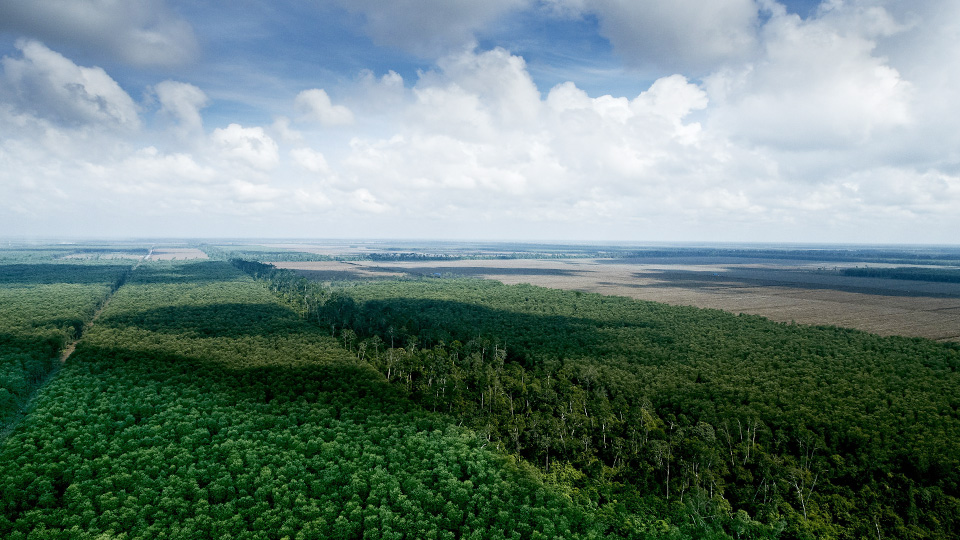- Details
A few years ago, life was tough for Apo, 32, and her family.
She grew fruit and vegetables on her small plot of land in Penyengat village, but a lack of equipment and skills meant that yields were low. Her monthly income ranged from IDR300,000-IDR500,000 (USD20-34).
"Maybe because the land is not large and we were not focused, the result is not really much," said Apo.
Seeking improvement she joined the local Bina Tani farmer cooperative, which introduced Apo and other members of his village to the One Village One Commodity (OVOC) program, run by local pulp and paper company RAPP.

Read more: How a community farming scheme is transforming this village’s prospects
- Details
Indonesia’s Riau province and its lowland tropical forests is home to a wide variety of Sialang trees – tall trees where bees reside and produce honey, aptly named ‘Sialang honey’.
The honey is prized by locals who believe it has health benefits, and harvesting Sialang honey has long been a traditional practice by the communities who reside near these forests.
However, the existence of Sialang honey is rare these days, primarily due to major deforestation practices over previous decades but also because of continuous harvesting of the honey throughout the years by farmers who did not realize the need to allow time for the honey supply to regenerate.
With low, unreliable harvests and a resulting lack of regular customers for the product, Sialang honey farmers therefore face uncertain incomes and livelihoods.
Seeing this problem, Riau Andalan Pulp and Paper (RAPP) decided to step in and help the Sialang honey farmers, by establishing Rumah Madu Andalan in RAPP’s Integrated Training and Business Development Centre.

- Details
Thirty-year-old Rahmi admitted she felt extremely heavy-hearted when she learned that she had to leave her husband and two children far behind and spend three weeks without them.
“I’ve never been far from my family. Moreover, my daughter was only two years old at the time,” she recalled.

However, Rahmi knew she had to leave in order to improve her life – and her family’s. Up until then, she had been living in a small house with her family, with her husband being the sole breadwinner in the family working at a car wash place.
As she was yearning to contribute to the family’s livelihood, Rahmi was therefore happy when she was one of the two people to be selected by the Riau Andalan Pulp and Paper (RAPP) Community Development team to receive training in the art of fabric weaving in Pekanbaru, Riau.
Read more: Women able to earn livelihood through RAPP’s cloth weaving program
- Details
M. Rafi remembers when not many people understood his decision to leave his stable job of 15 years at PT Riau Andalan Pulp and Paper (RAPP), part of APRIL Group.
Many of his colleagues at the time called him ‘stupid’ for leaving and choosing to start his own business.

“I was in a comfortable position as a supervisor and making a good income. So it was understandable that they saw me as crazy then,” Rafi, 42, said.
Born and raised on the banks of the Kampar River in Pelalawan, Riau in Indonesia, Rafi never imagined being the success he is today.



